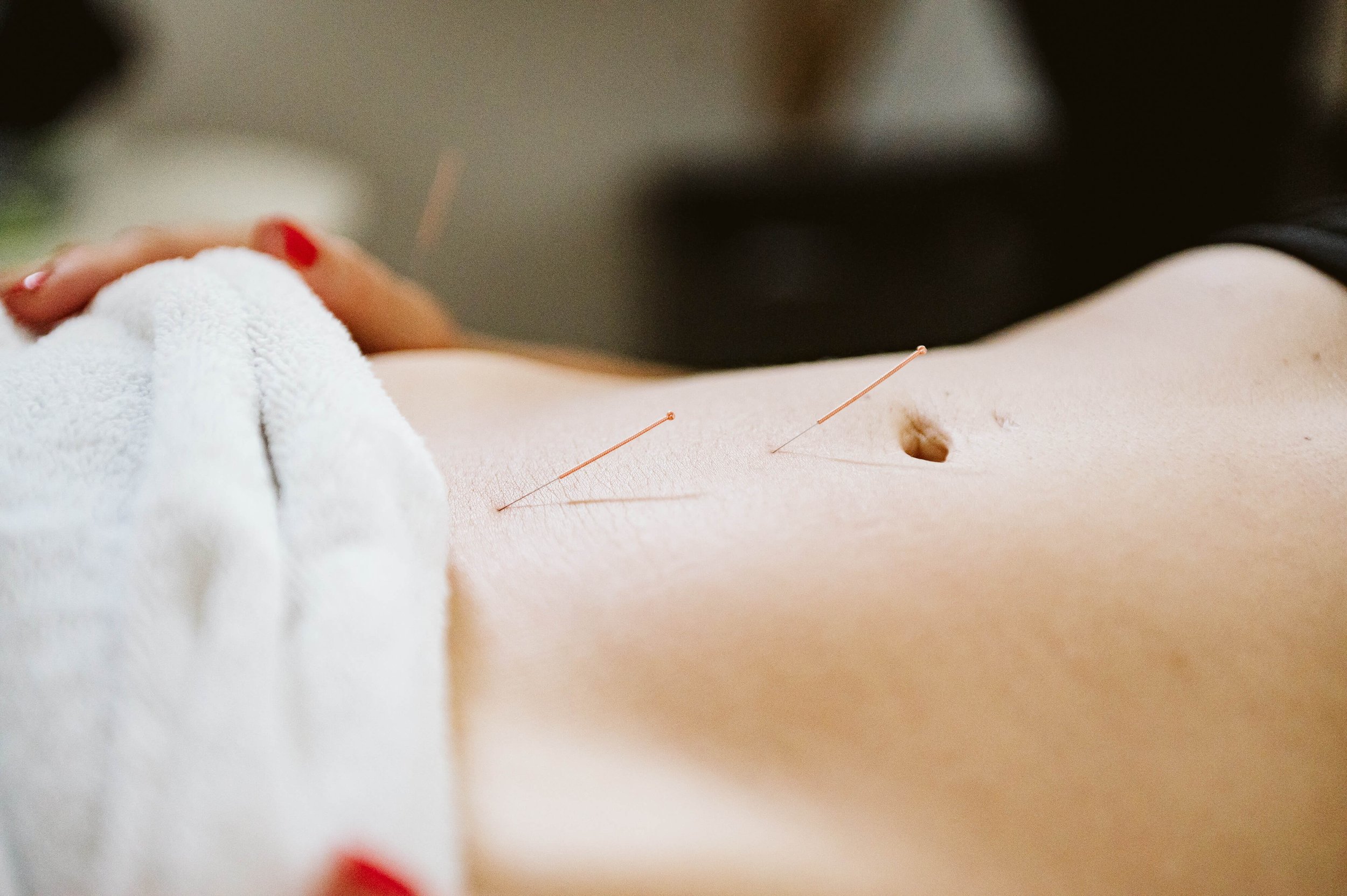
Key facts
- Acupuncture is a Chinese medical practice which has been used for thousands of years.
- Acupuncture can be helpful for chronic pain and some other conditions.
- Acupuncture can cause side effects such as bleeding, bruising or infection.
- Talk to your doctor about acupuncture and if it is safe to use with conventional medical treatment.
What is acupuncture?
Acupuncture is a form of complementary or alternative medicine. It’s an ancient medical practice, originating in China more than 2,000 years ago. According to traditional Chinese medicine, acupuncture clears energy blocks and encourages the normal flow of energy through your body.
People have been practicing acupuncture in Australia since the 1880s. It’s the most popular form of complementary medicine.
When you have acupuncture, fine, sterile, metal needles stimulate specific points in your body. These are called acupuncture points. There are up to 2,000 acupuncture points on the human body. They create energy pathways called meridians.
Some practitioners use lasers instead of needles to stimulate the acupuncture points.
The benefits of acupuncture are not fully understood by current medical science.
What are complementary therapies?
Acupuncture is one type of complementary therapy. Other complementary therapies include:
- Chinese herbal medicine
- naturopathy
- homeopathy
- massage
Both chiropractic or osteopathic manipulation and massage are complementary therapies.
While there is evidence to support the use of some complementary therapies, it’s not part of conventional evidence-based medicine.
Complementary therapies are used with conventional medicine. While alternative therapies are used instead of conventional medicine.
Who can do acupuncture?
Acupuncture is usually done by Chinese medicine practitioners. To qualify as an acupuncturist, you must study at university for at least 4 years. There are over 4,000 registered Chinese medicine practitioners in Australia.
Acupuncture treatment is also carried out by other health professionals, including:
- doctors
- physiotherapists
- nurses and midwives
- chiropractors
- osteopathy and naturopathy practitioners
You can check the registration of your practitioner on the Australian Health Practitioner Regulation Agency (AHPRA) website.
What happens during acupuncture treatment?
First, you will talk about your health problem with your practitioner. They will ask about your medical history, including what medicines you take.
They might ask you about:
- pain
- sleep problems
- nerve problems
- bladder and bowel function
- weight gain or loss
During your physical examination you will be checked for:
- tender spots
- range of motion
- ability to control your legs and arms
A Chinese medical practitioner will look at your tongue and check your radial pulse (pulse in your wrist).
Treatment
The acupuncturist will decide which acupuncture points to choose for your treatment.
The needles used in acupuncture are much finer than the needles used to take blood. The acupuncturist puts needles into your skin or muscle at the specific acupuncture points. Once the needles are inserted, they will be left in place for around 25 to 40 minutes.
The acupuncturist may turn or wobble the needles or use an electric pulse device to add stimulation. They will remove the needles at the end of the session.
You may be offered other traditional Chinese medicine therapies at the same time:
- moxibustion
- cupping
- remedial massage
- spoon therapy
Acupuncture does not usually hurt. During acupuncture you may feel:
- a mild tingling
- warmth
- soreness or numbness
You may feel calm and relaxed afterwards.
Acupuncture course
The number of acupuncture sessions you will need can vary a lot.
A course can be between 1 to 20 sessions. If you find that acupuncture makes you feel worse, tell your practitioner.
When should I talk to my doctor?
If you are planning on using acupuncture, it is important to talk about this with your doctor. It is best if both your acupuncturist and your doctor know about any treatments that you are having.
Before having acupuncture check if you have any of these problems which might affect how safe it is.
- bleeding problems or medicines that thin your blood
- lower immunity
- some types of cancer
- a metal allergy
- heart disease
You shouldn’t delay or stop any conventional medical treatment because you are having acupuncture.
You do not need a referral from your doctor to get acupuncture.
What is the difference between acupuncture and dry needling?
Like acupuncture, dry needling is a technique that involves puncturing the skin with fine needles to relieve pain.
Dry needling works on trigger points in your muscles to ease pain and muscle tightness. Acupuncture is a more holistic approach which aims to affect energy and organ systems.
Dry needling is most often done by physiotherapists, rather than Chinese medicine practitioners.
Is acupuncture effective?
Acupuncture seems to work by stimulating specific nerves and chemicals that control your nervous system and how you feel pain.
Acupuncture is often used to help control chronic pain. It may be useful if you have lower back pain, neck pain, shoulder pain or knee osteoarthritis pain.
There is also evidence for the use of acupuncture to treat:
- acute pain — such as tendinitis, tennis elbow or sciatica
- tooth ache
- tension headaches and migraines
- anxiety and depression — alongside prescribed medicines
- menstrual pain, pregnancy and fertility related issues
- nausea and vomiting
- insomnia
- allergies and common cold symptoms — such as itching sneezing and runny nose
What are the benefits of acupuncture?
When you have acupuncture, you may be able to get pain relief without taking medicines. You don’t have to worry if this treatment will interact with your other medicines.
Acupuncture works on the cause of your condition, not just the symptoms. It’s a holistic therapy, linking body, mind and emotions.
Is acupuncture safe?
Acupuncture is generally considered to be safe for most people. Only 1 in 10 people who have acupuncture for lower back pain have side effects.
It’s important that you see a trained and qualified acupuncturist. Remember that any procedure that involves puncturing your skin with needles or manipulating your body has some risk.
Side effects of acupuncture can be:
- soreness
- bleeding or bruising
- dizziness
- fatigue (tiredness)
- nausea
- infection at puncture sites
- contact dermatitis
More serious side effects are:
- nerve damage
- spread of blood-borne diseases, such as hepatitis B, hepatitis C and HIV/AIDS
- puncture of organs
Acupuncturists should use sterile, disposable needles to reduce the chance of infection. Using disposable needles helps to prevent the spread of blood-borne diseases.
Can I have acupuncture if I am pregnant?
Acupuncture can help ease morning sickness in pregnant women. It can also sooth back or pelvic pain during pregnancy.
You could also ask about acupressure, which uses the same points on the body but without needles.
Can I make a claim for acupuncture through my private health fund?
If you have private health insurance extras cover, acupuncture may be listed in your policy.
Private health insurance hospital cover does not include acupuncture.
Resources and support
Read more about acupuncture at the Australian Natural Therapies Association website.
Find out about complementary therapy during pregnancy at our pregnancy birth and baby page.



